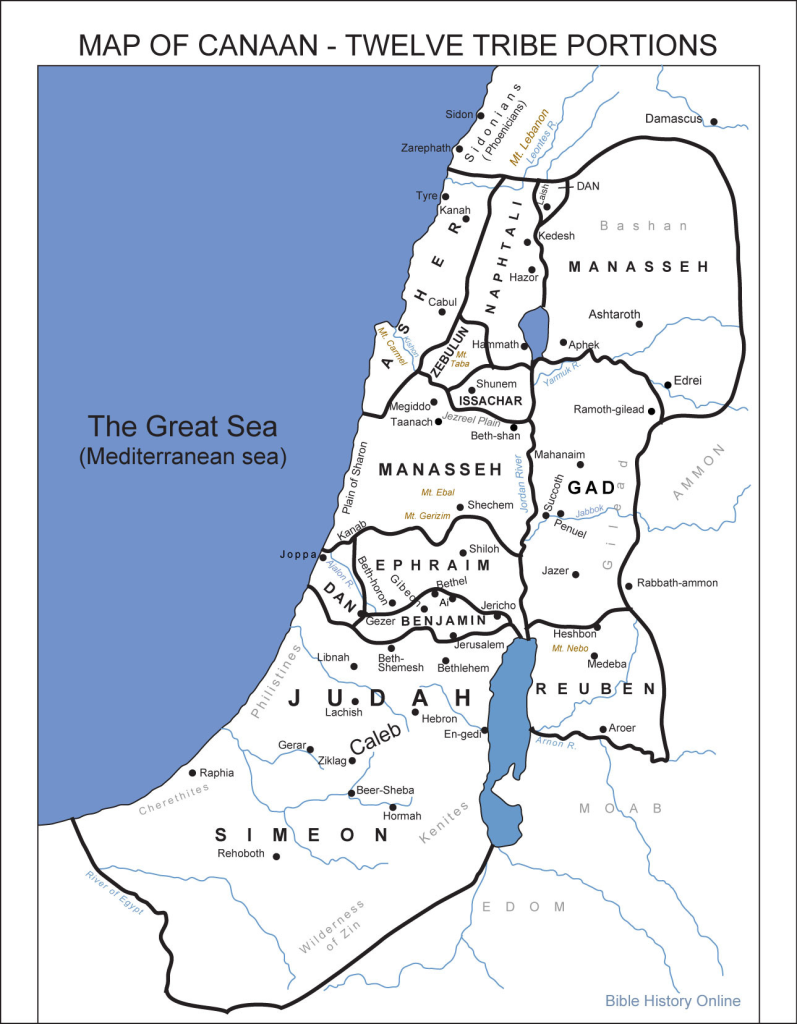
Canaan in the Bible refers to a region that roughly corresponds to present-day Israel, Palestine, Lebanon, and parts of Jordan, Syria, and Egypt. It is significant for several reasons:
- Promised Land: Canaan is most famously known as the “Promised Land” that God promised to Abraham and his descendants in the Bible (Genesis 12:7, 15:18-21). It represents a land flowing with milk and honey, symbolizing prosperity and abundance.
- Historical Setting: It was the setting for many biblical narratives, including the stories of the Patriarchs (Abraham, Isaac, and Jacob), the Exodus under Moses, the conquest by Joshua, and the era of the Judges and the United Monarchy under Saul, David, and Solomon.
- Cultural and Religious Significance: Canaan was inhabited by the Canaanites, who had their own cultures, cities, and religious practices. The interaction between the Israelites and Canaanites, including conflicts and assimilation, is a recurrent theme in the biblical narrative.
- Center of Ancient Trade Routes: Canaan was strategically located at the crossroads of ancient trade routes connecting Egypt, Asia Minor, Mesopotamia, and beyond. This made it a valuable and contested territory among ancient empires.
- Symbolic Meaning: Beyond its physical significance, Canaan also holds symbolic meaning in the Bible as a land of God’s promise and faithfulness. It represents the fulfillment of God’s promises to His people and a foretaste of the heavenly inheritance promised to believers.
Canaan’s significance in the Bible encompasses its role as a divine gift, a place of historical events, and a symbol of hope and promise for the future.
